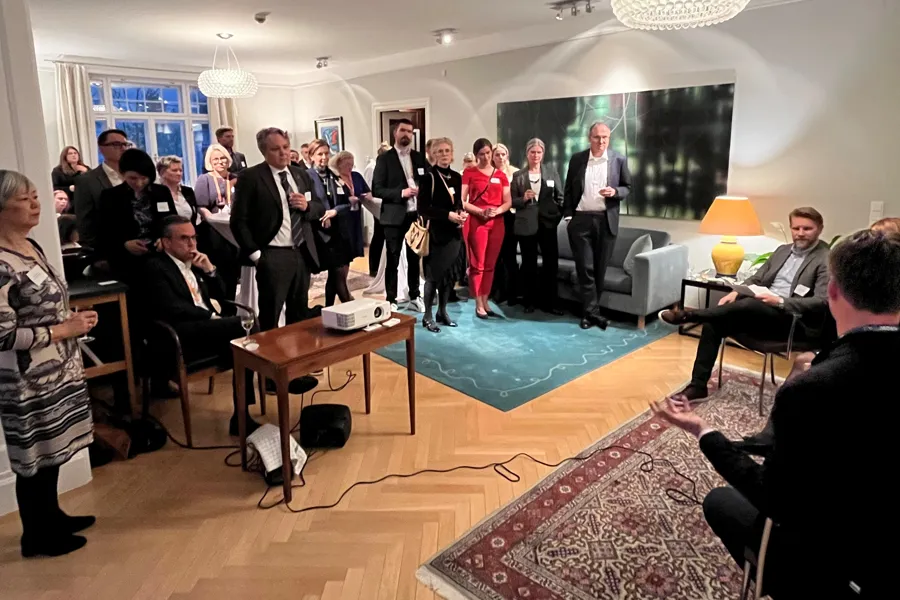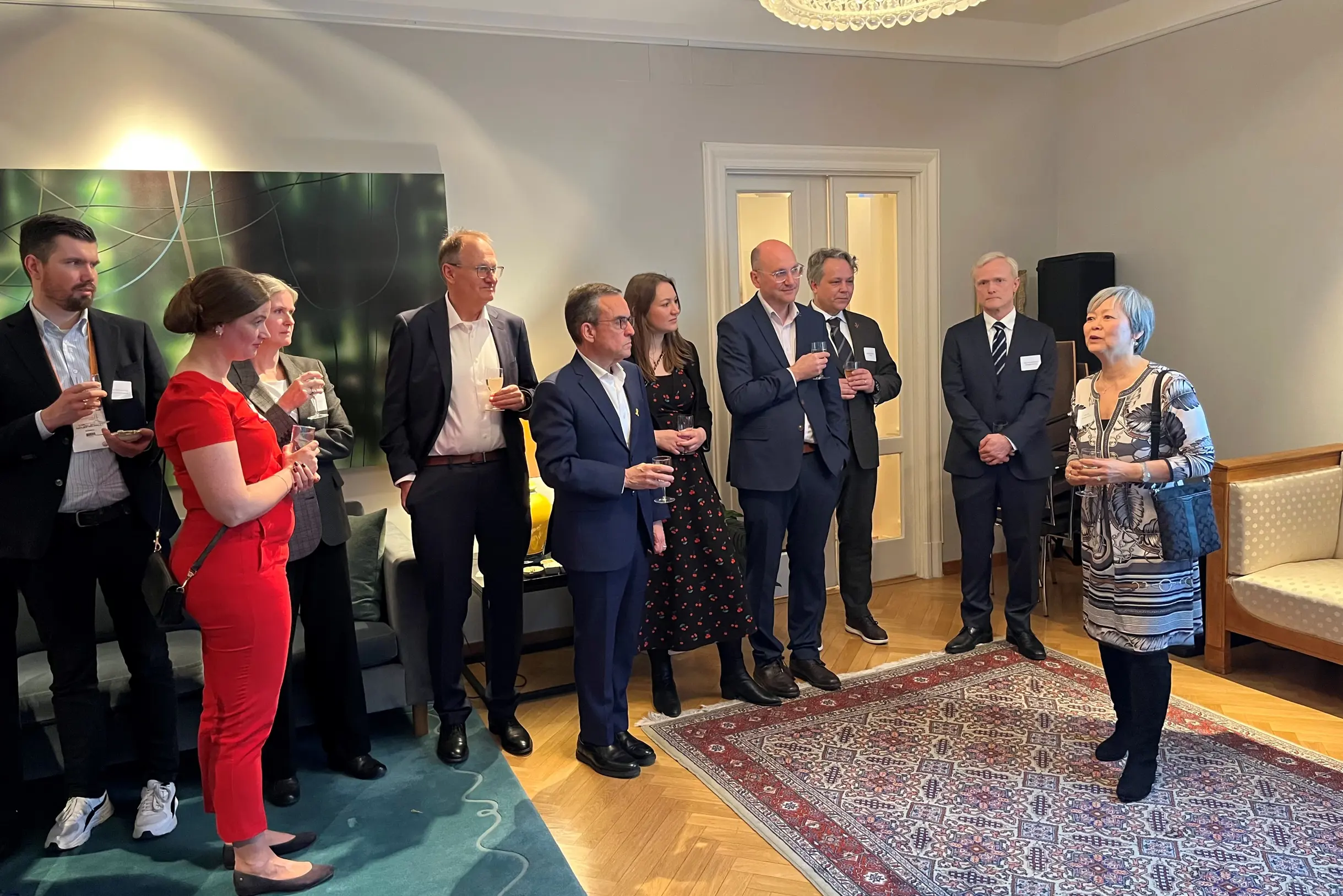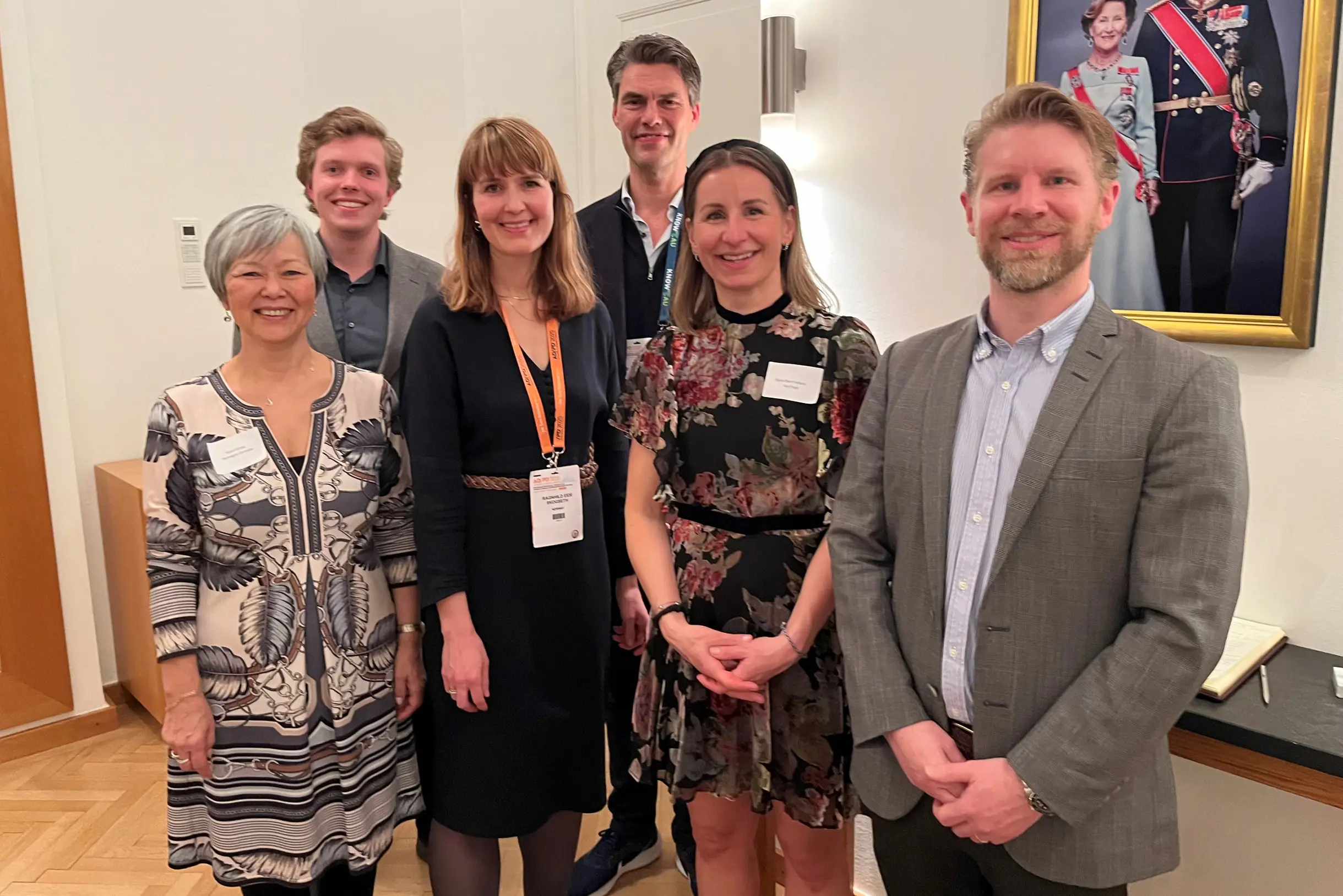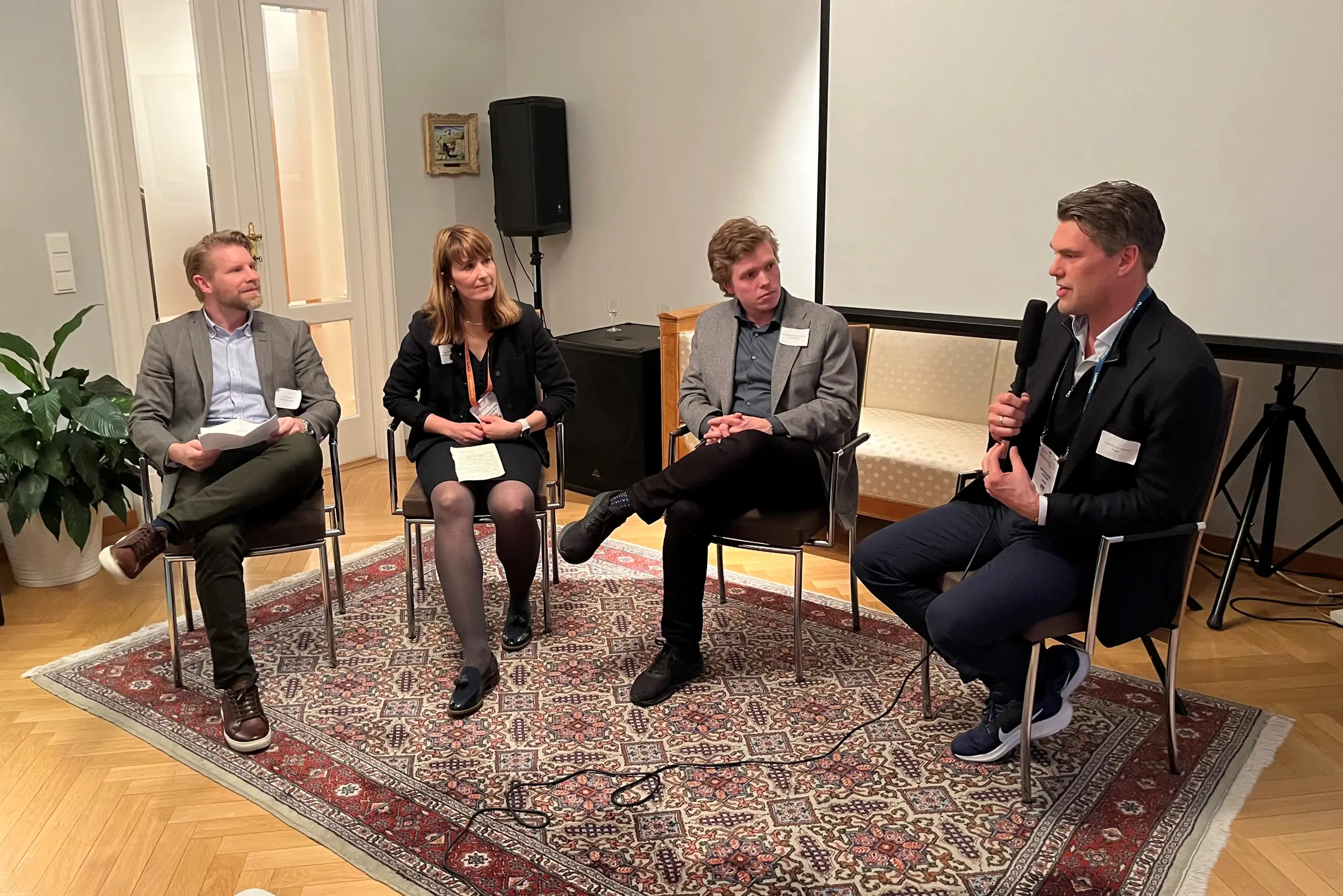Alzheimer's and Parkinson's Disease: Biomarkers and Innovations Bring Hope
In connection with the international conference on Alzheimer's and Parkinson's disease in Vienna this week, Norwegian clinicians and international industry representatives gathered to discuss clinical trials in Norway.

Photo: Eline Feiring
"Most of us know someone affected by Alzheimer's or Parkinson's disease and understand how it impacts both the patient and their relatives. I am pleased that you have come here to the ambassador's residence to exchange research experiences and hopefully attract trials to Norway," said Susan Eckey, Norway's Ambassador to Austria, in her welcoming speech.

Photo: Eline Feiring
There has been significant progress in brain health research in recent years, and there is continuing ambition to attract more trials in this field.
New innovations represent significant advancements in the fight against neurodegenerative diseases, offering hope for better symptom management and potential disease modification for both Alzheimer's disease (AD) and Parkinson's disease (PD). Many of these were presented and discussed at the AD/PD 2025 conference, taking place in Vienna this week.
Here are some examples:
- The FDA's full approval of lecanemab in 2023 marked a significant milestone in AD treatment.
- Following this, donanemab also received full FDA approval, further expanding the arsenal against AD.
- A cell therapy currently in a Phase III trial (exPDite-2) marks a major step forward in allogeneic cell-based therapies for PD.
- SPN-830 was also recently approved by the FDA - a subcutaneous infusion device that provides continuous delivery of apomorphine hydrochloride, significantly reducing "off" episodes for PD patients.
On Wednesday evening, Norway's Ambassador to Austria, NorTrials Brain Health, NorTrials Coordinating Unit, LMI, and Innovation Norway hosted a Norwegian networking event at the Norwegian ambassador's residence in Vienna.

Photo: Eline Feiring
In a panel discussion led by Jannik Grodt Schmidt from Innovation Norway, representatives from clinicians and industry discussed Norway's position regarding clinical trials within the field of neurological diseases. Espen Burum-Auensen, physician and Medical Director for the Nordics and Baltics at Biogen, represented the industry. Clinicians were represented by Ragnhild Eide Skogseth, a researcher at Haraldsplass Deaconess Hospital with a PhD on dementia with Lewy bodies, and Gard Aasmund Skulstad Johanson, physician and PhD candidate at UiB and Helse Bergen, as well as sub-investigator in the NADAPT trials on atypical parkinsonism.

Photo: Eline Feiring
They all agreed that Norway has many advantages when it comes to clinical trials in these areas.
"From a Parkinson's perspective, the potential in Norway is enormous," said Skulstad Johanson. "In our academically initiated trials, we see that the ability to recruit patients is very high, and many of our international collaborators are impressed by our recruitment rate. Currently, there are 1,000 Parkinson's patients participating in our academic trials - this is 8% of all Parkinson's patients in Norway – these statistics are groundbreaking internationally. This is a competitive strength we have in Norway; patients are interested in clinical trials. Our new clinical trial initiatives SLEIPNIR and HYDRA will be new opportunities for academia and the industry to collaborate by building an adaptive and effective infrastructure for testing new drugs," said Skulstad Johanson.
Another advantage in Norway is the use of biomarkers to confirm or rule out diagnoses, said Eide Skogseth.
"The rapid development in the biomarker field makes me optimistic for the future of clinical trials, for true progress we need precise biological and not syndrome based diagnoses. We can now say with great certainty that someone has Alzheimer's disease while they are alive - not just after their death - which is a major breakthrough. When we can also do this with dementia with Lewy bodies, it will be another major step forward. We also have a Norwegian dementia registry and clinical cohorts of symptomatic and presymptomatic patients that can serve as study-ready populations," she said.
Espen Burum-Auensen shares his medical colleagues' view that Norway has several advantages when it comes to neurology clinical trials.
"Primarily: The pharmaceutical industry has great confidence in the data we generate from industry trials conducted in Norway. Secondly: In the field of neurology, there are strong academic networks at most university hospitals. Thirdly: We have good oversight of our public healthcare services, including patients - where they live, how large the trials population is, etc. - which are elements that we in the industry find attractive. Fourthly: Technologically and infrastructure-wise, there are well-developed laboratories at more or less all hospitals in Norway capable of performing advanced analyses - including radiology with PET scanning capabilities. So Norway is well-positioned," said Burum-Auensen.